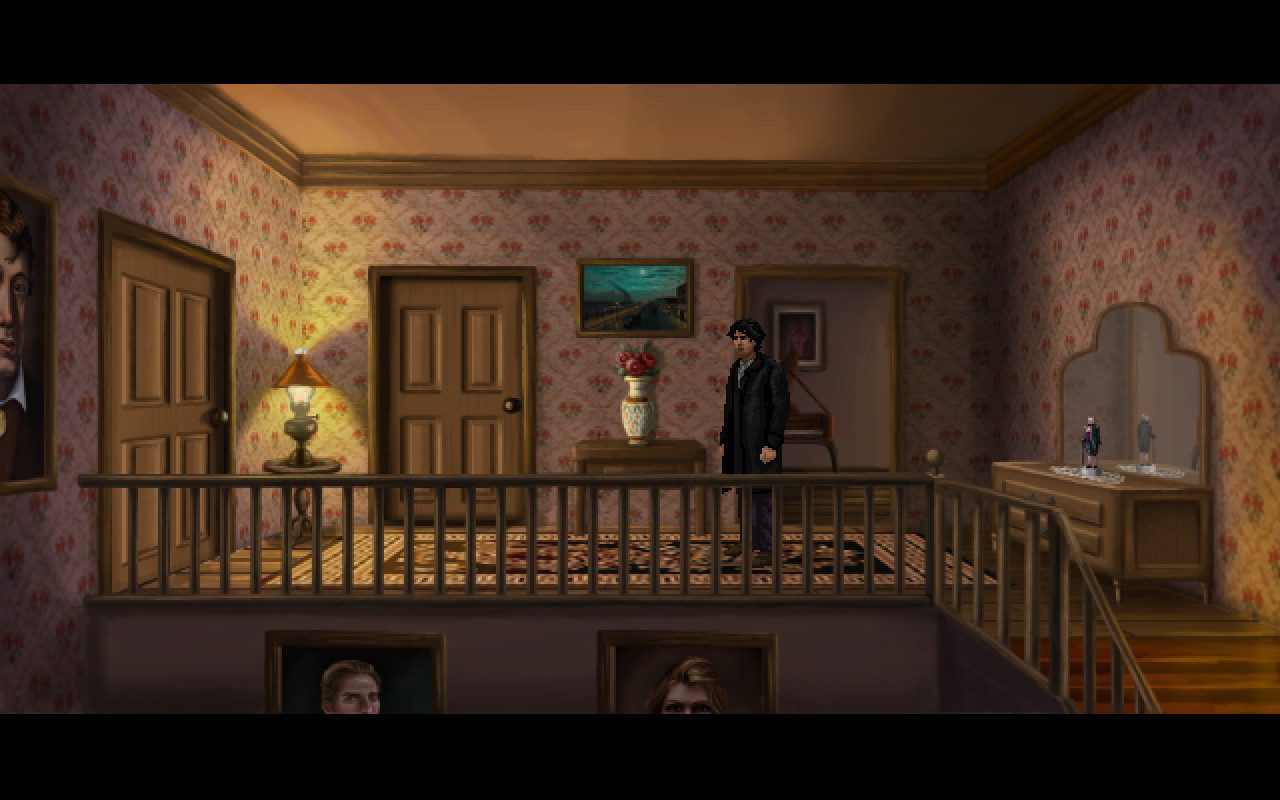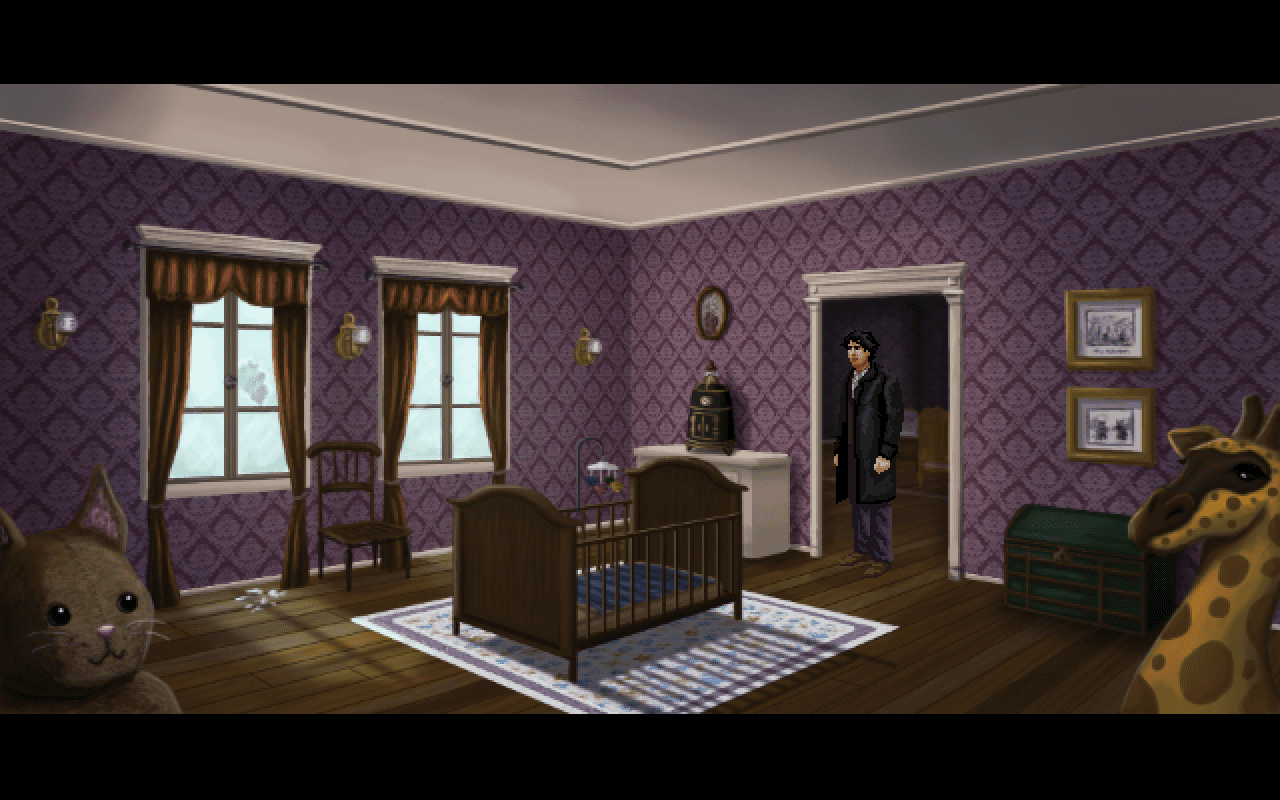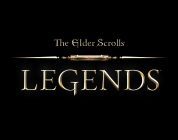Lamplight City is an excellent point-and-click adventure with a narrative that unfolds and develops as the result of your decisions throughout the game. Francisco Gonzalez, one of the masterminds behind the post-apocalyptic adventure Shardlight, has made a true passion project with his multiple roles as writer, painter and animator for the game. Gonzalez manages to breathe new life into the classic point-and-click adventure with his choices driven narrative that may even take you down a path you were not expecting.
Lamplight City takes place during an alternative 19th Century and is set in the Victorian chic New Bretagne. You begin in a carriage with detectives Miles Fordham and Bill Leger, who have been sent to investigate a strange burglary of a flower shop. Upon investigation, you discover that the burglar has repeatedly broken into the shop and stolen flowers, but leaves the money to pay for them on the counter. What begins as a mundane case very quickly turns into a dramatic prologue which paves the way for Lamplight’s overarching narrative, the investigatory approach to finding clues and the type of decisions you will have to make throughout.
Lamplight City is a detective adventure with a steampunk backdrop that focuses on the decisions you make during your investigation work when solving cases. It takes place during an alternative 19th Century and is set in the Victorian chic New Bretagne. You begin in a carriage with detectives Miles Fordham and Bill Leger, who have been sent to investigate a strange burglary of a flower shop. Upon investigation, you discover that the burglar has repeatedly broken into the shop and stolen flowers, but leaves the money to pay for them on the counter. What begins as a mundane case very quickly turns into a dramatic prologue which paves the way for Lamplight’s overarching narrative.
You play as Miles Fordham, a now private investigator after losing his role of detective following a tragic murder during the game’s opening sequence. As he struggles to cope, alcohol and sleeping medication become his devices in attempt to ease his conscience as he throws himself into his work. Each of the five cases you are assigned to investigate are varied in their mysterious dilemma – from finding missing people to identifying an attempted murder culprit – and require you to interview suspects, discover clues and explore environments to come to your conclusion. Throughout each case, you edge closer to discovering the murderer from the opening sequence and route for Miles in his attempts to hold everything together to refrain from losing his mind completely.
Gonzalez has created some beautiful landscapes to enjoy throughout the game with smoking chimneys and pedestrians going about their daily lives which implies a living world outside of the environments you are able to explore. Rooms and settings are decorated in such a way that clues are hidden secretly and require you to think about where to search and what to interact with, like any classic point-and-click game. Certain clues appear as set pieces and are obvious as they almost invite you to click them first. However, the skill is in finding smaller (and often vital) clues which are more cleverly hidden, such as behind paintings, in locked drawers and even in cracks in the walls. You reap the rewards of this thorough approach to finding clues as each piece comes together as a complete jigsaw to aid in accurately solving each case.
This never feels tiresome, even when you come to areas which you have limited interaction with but know that you will be coming back to later. These areas reveal more clues upon learning more about them from conversations and clues found in other locations. This classic (essentially ‘problem-solving’) mechanic of the genre feels organically structured in making you think and approach a scenario like a private investigator and can be invigorating to resolve. Lamplight does not drive you to the point of frustration as the game’s narrative is intriguing enough to make you want to pursue each clue and further develop every case.
Your casebook is your bible, which keeps together all of your clues, suspects, and important information that is vital on your approach to solving cases. It is handy to refer back to and if you even begin to feel overwhelmed by the information received, it is organized into small digestible sections which reminds you what you have learned and what important things you need to know going forward.

One of the core strengths of Lamplight City is in its characters, which are well written and believable as the voice actors manage to breathe significant depth into them. Leger acts as the conscience of Fordham—the literal voice in his head guiding his partner through the game. His narration on events and things you investigate are helpful and genuinely hilarious in places and really grounds the characters’ relationship with one another.
Conversations play out similarly to those seen in Metal Gear Solid’s codec sequences with animated character portraits appearing alongside each other on a darkened background. This highlights the importance of the conversations within the game as your focus rests solely on the characters engaging and revealing their part in each case. This builds your intrigue in each character’s involvement and knowledge of the crimes committed. I do wish that more conversations had more choice based decisions within them however, as they can sometimes be perceived as simply links to click to receive further information. However, some conversations do include choices in what to ask to gain vital information. They are exciting and put you right in the frame of mind of an investigator as you ask yourself, “Should I really ask them about this? Will this get an answer out of them?” The excellent voice acting and conviction of the writing is able to carry the minor information grab conversations as interesting gameplay sequences.
There are some genuine philosophical discussions which occur between characters at times, which highlights their disposition on the case and philosophy on life. In the first case you investigate, Albert Martin has been accused of attempted murder of Madam Duprée. To gain insight into Martin’s character, your investigation can include questioning his mother Mrs Martin, a religious ‘voodoo’ practitioner. Miles asks her about a ‘coded message’ which her son spoke, to which Mrs Martin replies “The thrill of the unknown is always more exciting than the truth. Mystery makes life a little more interesting.” Miles is quick to shoot this theory down as he implies his job is to uncover mysteries, otherwise he would be unemployed.
Although referring to the coded message, this statement is an allegory for Lamplight as the ‘thrill’ lies in uncovering the ‘mystery’ in each case, as well as the mysterious identity of the murderer from the game’s overarching plot. The occasional occurrences like this throughout Lamplight are stand out and invite you to consider your own philosophical disposition along with the characters. This adds a deeper layer of psyche, especially to Miles, which I was not expecting from Lamplight City, but is certainly a welcome addition to understanding how character building can be skilfully executed.
The game can offer hand holding to a minor degree, but when solving each case, it comes down to you and your own intuition. You can end a case early if you feel you have the correct suspect at hand or you can investigate further if you feel you need greater insight. Lamplight does a brilliant job of adapting to your choices and revealing their outcome to you whether you have solved a case properly or not. You can achieve the ‘good’ ending for each case with thorough investigation, but you are not limited to this one method of pursuit. If you fail completely, the game simply carriers on and does not force you back to make an apparent “correct decision.” However, failing completely can cause you to receive the most negative ending whereby you miss out on the final chapter of the game altogether.

Like any decent game that includes decision making, Lamplight City provides enough intrigue and excitement into discovering where alternative choices would take you. I often found myself weighing up the options before me and taking time to mull over which choice I would make (which reminded me of the pause time I racked up when playing Telltale’s The Walking Dead!) Lamplight City’s decision mechanic adds multiple levels to explore in its interactive narrative, which offers a strong desire for replayability to see where else the story could take you.
I left Lamplight City feeling genuinely fulfilled in the narrative I had chosen and the decisions I made when solving cases. This was the result from my detailed approach when looking over all of the evidence, talking to every suspect and piecing the clues together. You get out of Lamplight what you are willing to put into it and are rewarded accordingly in the decisions you make.
Each character stood out to me with their clear disposition and distinctive personality. When thinking back, I could easily speak about characters and how they impacted on each case, which is tribute to the writing by Gonzalez when creating believable and engaging characters to interact with.
The beautiful art style provides detailed environments I genuinely enjoyed exploring when combing over to discover clues. The interesting cases are carefully considered and feel reminiscent in detail to those explored by Sherlock Holmes. The overarching story ties together neatly in the game’s conclusion (if you are able to see it!) and certainly provides enough intrigue to make you want to go back and see where other choices would lead you.
As an indie title, Lamplight City has significant ambition and passion which highlights the importance of a well-developed narrative and nicely written characters in a world often obsessed with high-end graphics and monetized DLC.





